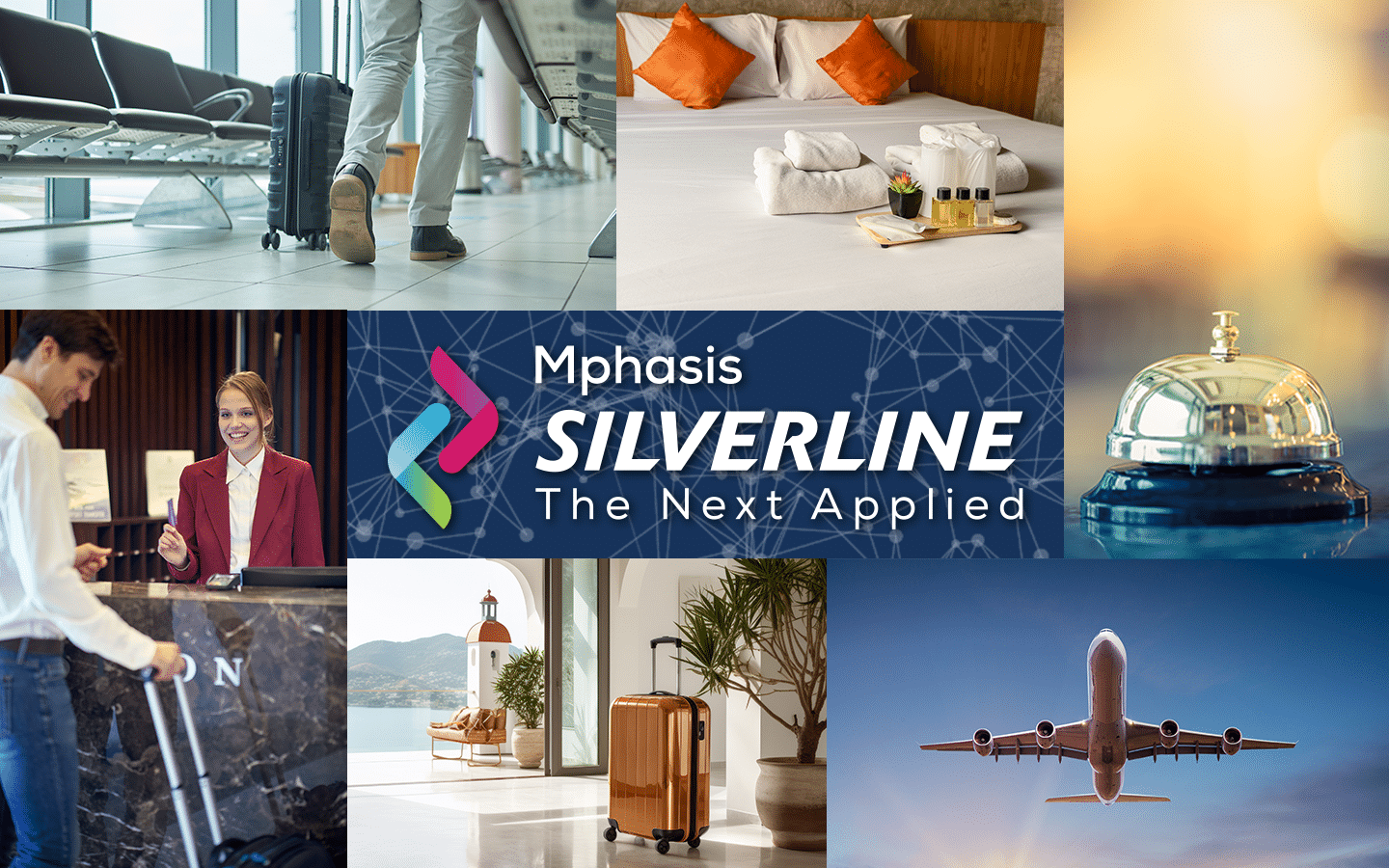Organizations across the travel & hospitality industries have traditionally relied on classic and familiar communication channels, like email and phone calls, to engage with customers. With travel volumes surging post-pandemic, most have seen a dramatic increase in these time-consuming communication methods, leading to the need for more staff and prolonged wait times for travelers seeking assistance.
Understandably, customers become frustrated, prompting concerns among companies regarding a decrease in customer satisfaction and potential revenue loss. Furthermore, there is a strong preference among a rapidly growing set of clientele to avoid email messages and phone conversations altogether. Many companies are now seeking a solution to address the influx of service requests so they can engage in meaningful conversations when and where customers prefer and keep overall costs at bay as they service large volumes of customers.
The solution: Salesforce Einstein AI ChatBots
Salesforce Einstein AI ChatBots is one of the most meaningful applications of artificial intelligence to meet the business challenge of scaling service availability while maintaining or improving customer engagement.
Implementing Salesforce Einstein AI Chatbots creates highly available, artificially intelligent, personalized full-time support and concierge for your guests and travelers. They can guide, inform, and resolve issues as first-line responders that are “self-aware” and know when your support staff should get engaged so the customer has a positive experience.
These travel ChatBots can personalize the conversation, tailoring content, process, and messaging. For instance, if a user initiates a chat from a particular page or component of your app, the ChatBot can anticipate that the user might have questions related to the context the chat was initiated in.
If the user is known, a ChatBot personalizes its response, recalling past interactions and preferences along with current or future travel plans to offer a more personalized experience. In addition, the ChatBot can adapt responses to the tone and intent of the conversation. If the user expresses frustration, the ChatBot can offer empathetic responses and escalate the conversation to a human agent.
In essence, the ChatBot can optimize its performance and the content of a conversation based on the user’s starting point, identity, and the context of the conversation to deliver a tailored and meaningful moment with the client.
Use cases for travel & hospitality
- Solving common customer issues
- Respond to inquiries about rebooking and cancellation policy
- Accommodate preferences for dietary restrictions
- Service requests for wheelchair assistance
- Personalized recommendations
- Offer a discount on a rental car after engaging with a customer about a flight
- Suggest favorite dog-walking spots close to property for hotel guests checking in with a pet
- Make recommendations for dining reservations based on meal times booked on previous visits
- Solicit feedback
- Verify the effectiveness of the ChatBot’s interaction
- Check in on the customer’s experience after booking a spa appointment
- Ask a customer traveling with children how the children liked the kid’s entertainment and amenities
- Provide real-time updates
- Inform passengers about upcoming entertainment
- Notify a guest when their room is ready for check in
- Announce meeting times and locations for events while guests are traveling
As Salesforce experts, Mphasis Silverline implements Salesforce ChatBots and Einstein AI with a creative and consultative approach. There are an array of options when it comes to tailoring the right approach and roadmap for your ChatBot solution. All of the options involve thoughtful business and technology decisions to ensure both are equally represented and prepared to support the other across the implementation journey.
Preparing and planning for a ChatBot implementation journey
The journey to transform your customer engagement with ChatBots should be a mindful one and may best be accomplished by iteratively planning, implementing, and deploying, measuring and iterating to optimize both the ChatBot technology and its place within your organizational support and sales structure.
From a technical perspective, the spectrum of options starts at rapid out-of-the-box solutions that provide a basic customized look and feel and a predefined process to guide conversations to more advanced solutions powered by Salesforce Einstein Generative AI that can be deployed across your web and mobile app presence.
An initial major decision is your immediate need and readiness to apply Einstein AI in your initial implementation. The positive news is you don’t have to achieve AI day one as process-based Salesforce ChatBots enable a lot of value with a rapid time to market. The reality is that Einstein AI will require a universe of data that provides meaningful context to the “intelligence engine.” In our experience, that can take some organizations some time to establish.
Humans need knowledge and situational awareness to create intelligence and computers are very similar in that respect. Once established, that universe of data has a great deal of potential to not only inform AI, but also create new opportunities for streamlined processes across your marketing, sales, support, and other functions.
Key considerations for ChatBot implementation
Regardless of the end goal, the process with Mphasis Silverline starts with strategy and envisioning workshops to establish a current state, a desired future, and the steps in between. Maybe you’d like to get a jumpstart on how to start thinking about all of this? The following are some of the considerations that form the pre-work to start envisioning your organization’s journey:
- Current baseline customer engagement and question/issue response metrics
- Customer service KPI trending
- Quantity and categorization of questions and issues
- Map of support structure and differentiated skill sets
- Client behavioral patterns across your digital engagement landscape
- What do we know about our customers and where does that information come from
- Customer transactional current state and history
- Map of customer touchpoints
- Map of customer feedback mechanisms inclusive of third-party sources that are meaningful to your business
- Existing preference center(s)
- Vision
- What do our customers want from us
- Why do they want it
- When do they want it
- How do they want to receive it
With the implementation of AI ChatBots, organizations in travel & hospitality put their customer first by expanding their service into digital channels to create moments that matter. They can expect improvements in response times, reductions in time to resolution, and a significant deflection of overall calls and emails. As a result, agent productivity multiplies without having to hire additional staff. Most importantly, they enhance customer service, directly influencing the customer experience and ultimately fostering customer loyalty.
The future: Expanding customer engagement across all channels
Beyond AI ChatBots, organizations are extending their service capabilities across even more communication channels by integrating their telephony system with Salesforce and implementing Omnichannel to allow live chat and messaging. This approach allows them to meet their customers wherever they are. Ultimately, all channels converge in Salesforce, allowing agents and your organization the much desired summary of every single engagement with your guest.
The application of AI to your other methods of communication is also possible, and can benefit from the same universe of data to provide context and insight to personalize phone calls, emails, SMS, and the like. In addition, don’t confine your thinking of chat to just a window that pops up on a webpage. Creative implementations of the chat function can embed conversation assistance into the content itself across your web and mobile app digital experiences.
At this point in your journey’s future, you’re engaging each traveler on their preferred communication channel. You can seamlessly communicate with your guests across various channels while ensuring that service agents have a comprehensive view of the entire conversation, even if it transitions from email to text message to phone.
Learn more about how our travel & hospitality team can help your organization.



